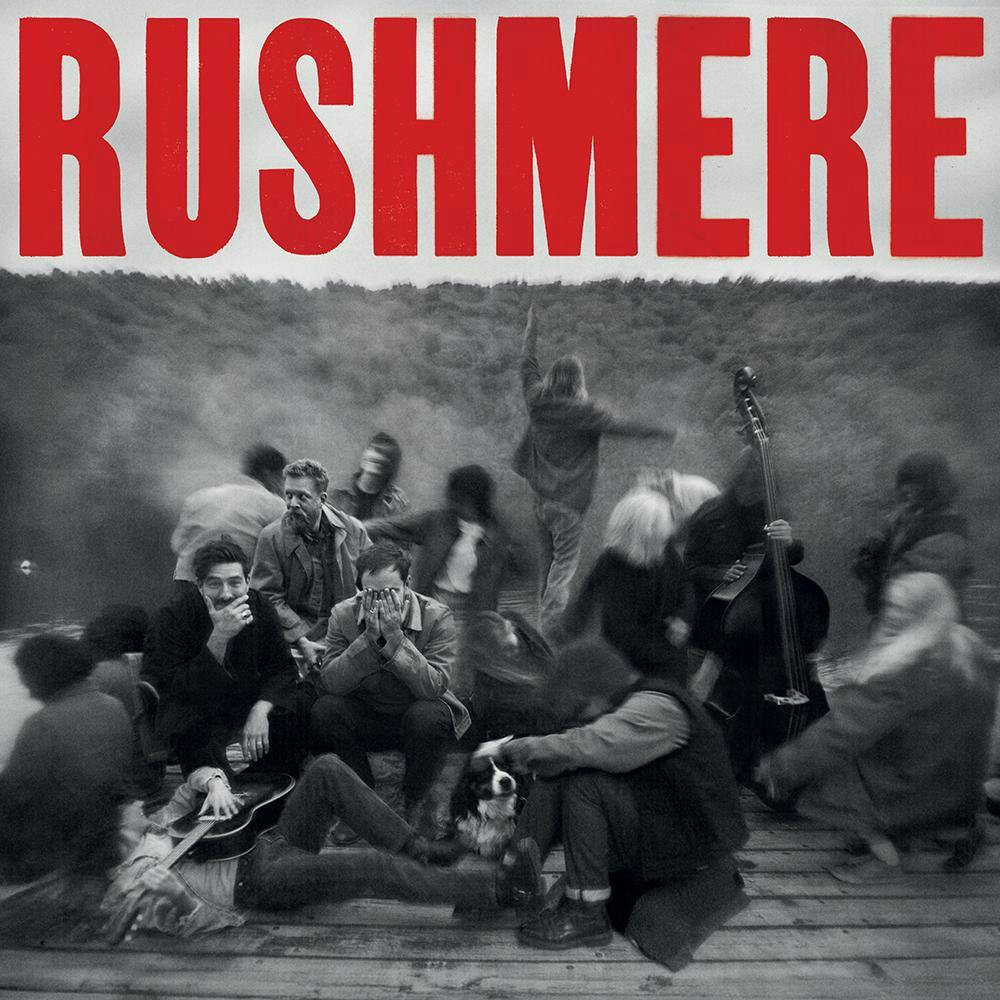English rock band Mumford & Sons released their fifth studio album, “RUSHMERE,” on March 28. Despite releasing their previous album, “Delta,” almost seven years ago, Mumford & Sons emerged from silence with far too safe a play, resulting in a dull and lifeless body of work.
“RUSHMERE” was released almost four years after lead guitarist Winston Marshall left the band. The decision was made after Marshall tweeted in support of far-right social media influencer Andy Ngo’s 2021 book, “Unmasked: Inside Antifa’s Radical Plan to Destroy Democracy.” The band’s internal dissonance is evident in “RUSHMERE,” which leans too heavily on their past work.
The album, though only 34 minutes long, feels endless. Devoid of any core, “RUSHMERE” is an amalgam of the many aspects of Mumford & Sons’s musical identity — but without a cohesive purpose.
The project opens with “Malibu,” a classic Mumford & Sons ballad. With a stripped-down sound and pleading lyrics, the song establishes a return to the band’s origins. The same can be said of “Rushmere,” the album’s lead single. The song is a clear replication of tracks from their 2009 album, “Sigh No More.” But the bright-eyed hopefulness of that album is cheapened on this reproduction. Lyrics like “You say ‘Come get lost in a fairground crowd’ / Where no one knows your name” come across as self-indulgent after their years of mainstream success.
This is the trap that “RUSHMERE,” like many folk-rock albums, falls into: searching too deeply in the past for inspiration. Themes that used to be relevant and meaningful become increasingly redundant — and inauthentic.
“RUSHMERE” is repetitive and uninspired, with most songs indistinguishable from others. “Surrender” is a desperate cry for forgiveness, with lyrics like “Break me down / And put me back together / I surrender.” The track “Where It Belongs” is also a plea, with a chorus that isolates Mumford’s voice — a frequent choice by the band and a highlight of the album. Though the songs’ content and sound are often lackluster, Mumford’s vocals remain as powerful as ever.
“Caroline” addresses a woman of the same name and breaks open the troubles of a toxic relationship. Lyrics like “Break this glass and make a scene again / I know that’s what you want so you can write again” contribute to the highly-aestheticized version of love that the band often sings about: Visceral and passionate love affairs, often described with lengthy metaphors, establish the world of Mumford & Sons.
“Monochrome” is a slowed-down love ballad, but despite its intimacy, it wavers into cringe-inducing territory. But perhaps cringe is the cost of being known and loved. Among the strange pet names (“Hyacinth girl”), there are moments of pure honesty. Mumford’s voice is clear as he sings “The kind of love I am always chasing / Is the kind of love that won’t be chased.”
“Anchor,” “Blood On The Page” and “Carry On” mark the album’s shining points, rising above the tedious noise they’re sandwiched by. “Anchor” is a heartfelt admission of guilt over stripped-down, lonesome production and incredibly powerful lyrics. In “Blood On The Page,” the band collaborates with American singer-songwriter Madison Cunningham on a charming track. Lyrics like “But call me out late / Call me in a slip / I will still run to your side” are heartwarming, made more impactful by Cunningham’s haunting backing vocals.
“Carry On” is the album’s devastating closer. The band dives headfirst into religious themes that stand out against the monotony of the rest of the album. Lyrics like “If this is what it’s like to be lost / I will take this heresy / Over your hypocrisy” point to a depth of subject matter that the band clearly has access to, but failed to make full use of throughout the album.
“RUSHMERE” reveals itself to be nothing more than an unremarkable addition to Mumford & Sons’s discography. In the wake of internal strife, the band was unable to rise above their origins as a folk-rock band and present something new to the genre. For lovers of folk, the album carries the essential elements to make it an enjoyable listen, but in the grand scheme of 2025 releases, “RUSHMERE” leaves much to be desired.





